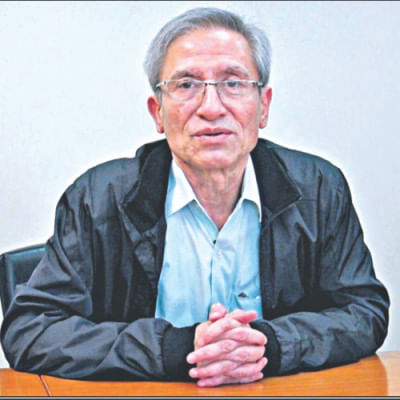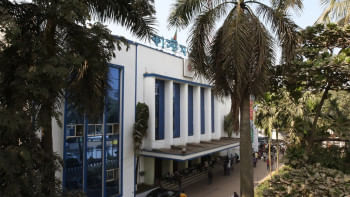Encouraging progress, still long way to go

Bangladesh has made encouraging progress on the World Bank’s Ease of Doing Business (DB) 2020. The rank has improved by 8 places to 168 from 176 a year ago.
The country earned a place among the “Top-20 improvers in Doing Business 2020” because of reforms in the areas of starting a business, getting electricity and getting credit.
The DB indicators measure the regulations applying to domestic small- and medium-sized companies through their life cycle covering the regulatory processes dealing with the costs and risks of doing business in a country. These help identify places where reformers can reduce unnecessary costs and risks caused by improper regulation.
The DB assessment presents results, covering 190 economies, for the ease of doing business score, called Distance to Frontier (DTF), as well as ranking based on DTF.
Bangladesh’s overall score increased from 42.5 last year to 45 this year, driven by increase in the DTF on the ease of getting credit from 25 last year to 45 this year followed by electricity from 30.8 to 34.9 and starting business from 80.8 to 82.4. The rank on getting credit improved 42, starting a business 7 and getting electricity 3 notches.
What did Bangladesh actually do to achieve the improved scores and rankings in the above areas?
Bangladesh earned points on the credit information index by expanding the coverage of the Credit Information Bureau in both Dhaka and Chittagong.
The minimum amount for loans to be reported to the Credit Information Bureau (CIB) database was lowered from Tk 50,000 to Tk 1. The CIB also restored the archived data for the last five years in its database, which was not previously available before its server upgrade.
Bangladesh made starting a business less expensive. It reduced the official name clearance and registration fees from Tk 600 to Tk 200 and abolished the Tk 1,000 fee for digital certificates in both Dhaka and Chittagong.
The procedure for calculating business registration fee based on the size of share capital was reformed to reduce the total fees.
Bangladesh made getting electricity in Dhaka less costly and faster. The Dhaka Electric Supply Company (DESCO) reduced the security deposit for a new connection by half.
DESCO also invested to expand its staffing and digitisation processes, leading to a decrease in the time to apply for a new electricity connection.
Also, the Bangladesh Energy Regulatory Commission (BERC) revised the retail power prices charged by utility companies, thus earning points on tariff transparency.
Bangladesh’s score on dealing with construction permits increased marginally from 60.8 last year to 61.1 this year, leading to improvement in ranking from 138 last year to 135 this year. The country does well on costs as percent of property value (1.6), close to OECD high-income country average of 1.5 percent and much lower than the South Asian average of 12.5 percent.
Unlike last year, when Afghanistan went ahead of Bangladesh coming from behind, none of the countries that were below Bangladesh last year could surpass Bangladesh this year.
Also, several countries ahead of Bangladesh’s rank last year progressed slower this year, thus enabling Bangladesh to overtake countries like Guinea-Bisau, Gabon, Sudan, Iraq and secure back its place ahead of Afghanistan.
In a world where countries are competing intensely with each other for capturing foreign direct investment (FDI) flows and export orders, what matters most at the end of the day is its ranking.
Bangladesh’s rank (168) remains well behind all competitor countries in East Asia such as Vietnam (70), China (31), Indonesia (73) and Cambodia (144) and also in South Asia such as India (63), Pakistan (108), Sri Lanka (99) and Nepal (94).
The country still lags deeply in areas such as enforcing contracts (189), registering property (184), trading across borders (176) and, despite improvements, getting electricity (176).
It takes 1,442 days to enforce a contract through the courts and costs 66.8 percent of the contract value, much longer and more expensive than among South Asia, not to speak of OECD high-income economies.
Registering property in Dhaka takes 264 days, officially costing 7.1 percent of the property value. It takes 168 hours and costs $408 when exporting to comply with the border requirements, longer and more expensive than even among South Asian as well as OECD high-income economies.
Improvements notwithstanding, a Bangladeshi company must wait an average of 115 days to get electricity connection, which costs 1,781 percent of Bangladesh’s per capita income.
A company must spend an average of 435 hours per year complying with fiscal requirements, compared to 64 hours in Singapore and 273.5 hours average for South Asian economies.
Bangladesh needs to deepen reforms much quicker. Bangladesh made it to the top 20 this year with reforms covering the minimum of three areas, while countries such as Bahrain and Saudi Arabia are in the same league covering 9; China 8; Kenya and Pakistan 6; Myanmar, Nigeria, Kuwait, Zimbabwe and Togo 5; and Azerbaijan, Kosovo, India and Uzbekistan 4.
India’s ranking improved 14 notches this year, 67 notches in last three years and 75 notches in last five years, showing rapid ascension is possible in a relatively short period of time by casting the reform net as wide as possible.
Making regulation more efficient, accessible to all and simple to implement in all ten areas will enable diverting the energies of entrepreneurs to business expansion and innovation.
It will also make it easier for aspiring entrepreneurs to compete on an equal footing. Many studies show better performance on the DB indicators is associated with greater inflows of FDI.
Econometric analysis, considering differences in macroeconomic and governance conditions, show strong and statistically significant relationship between FDI and the overall level of regulation.
The government began to make concerted efforts to implement regulatory reforms a couple of years ago to get Bangladesh to double digits in DB ranking by 2021. Good to see that the journey has begun.
However, there is absolutely no room for even an iota of complacence because this is an uphill sprint with a finish line to reach which the country must run faster than those behind as well as those ahead.
Sustained improvements in Bangladesh’s ranking can have a potential signalling effect on foreign as well as local investors about the government’s commitment to deeper reforms.
Reformers should not expect that better scores and ranking will immediately attract foreign investment. Regulation, after all, is not the only binding constraint.
They should see instead that game changing business climate reforms leads to better domestic investment, a key element of eventually attracting foreign business.
The author is an economist

 For all latest news, follow The Daily Star's Google News channel.
For all latest news, follow The Daily Star's Google News channel. 



Comments